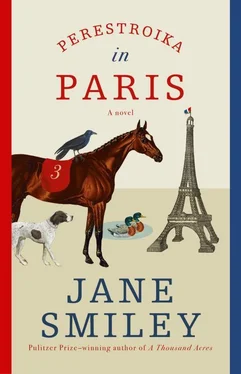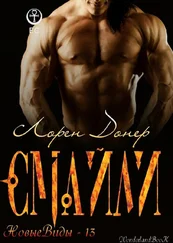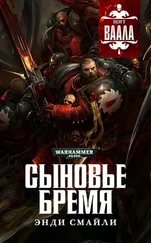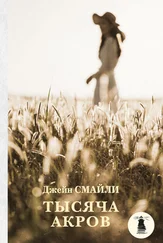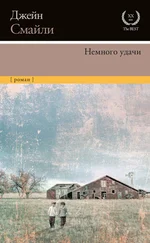But once she felt better, then she felt worse—truly, she had been selfish. She had wanted Étienne all to herself, and had also wanted to prevent anyone, everyone, from access to the life they led here on the Rue Marinoni. Her experience of Paris was that if you went about your business with dignity and cleanliness, no one dared to investigate. Yes, she had plenty of money in the bank—her bills were paid—but she didn’t remember the name of the bank—the old one had been taken over more than once, and no doubt the bills were no longer even paid by a human, but by a computer program. As she remembered, she had crept to the bank some years ago—four? five?—and the man she met there, very well dressed, had reassured her that the bank had only her best interests at heart. Did she believe him? How might she decide? If someone were to investigate, she and Étienne would be separated, and both of them would be put in separate places to be “taken care of.” Her extreme age was against her, her failing sight was against her, her deafness was against her. It would be easy for “an authority” to assume that she could no longer live independently, would it not? Easy and profitable for a hospital, a facility, a “guardian.” She remembered the orphanages and institutions of her youth, cages for children where beatings abounded, food was scarce, and the adults embezzled the funds. Whether these things were true about real orphanages, or whether she’d read them in books, she could not now remember, but the images were as clear to her at ninety-seven as they had been at six, when, walking down the Avenue de la Bourdonnais, she asked her nurse why children were alone on the street, why they were so dirty and thin, why they came up to her and grabbed her elbow. Her nurse, a kind woman, had handed out what change she had, shaking her head, saying, “The war! The war! Our Father who art in heaven, have pity!” Madame could reassure herself that Étienne was better off than those children, at least. Every day, she ran her hands over the boy’s clothing to discover if he was dressed properly, and, every day, he was, and she detected no bony protuberances or emaciated upper arms—he was no wild child, like that boy she had seen in some film, when was that? A friend had taken her, then introduced her to the director, a handsome man whose name always made her think of truffles. Étienne was clean, fed, responsible, an avid reader. She shook her head, came back to the present, thought of the future: “What next?”

THE HORSE WAS about to stand up; Étienne wrapped his legs around her sides and twined his fingers into her mane. Underneath him, she tilted back, then heaved forward, and then he was up toward the ceiling (not too near the ceiling, since the ceiling in the grand salon was five meters high). She stood quite still. He could see through the window from a different angle, too, and what he saw was the top of the fence outside, the buds on the shrubbery that enveloped it, the house across the street, and a bit of brightening bluish sky—it was just past dawn, and his great-grandmama would awaken soon. He had stood on the back of the sofas once or twice, and looked out the windows of the library upstairs, and he ran up and down the staircase every day (he had been known to slide down the banister, until that became rather boring), but this was different. He felt Paras’s warmth. Perhaps he even felt her heart beating and the blood coursing in her veins. He felt her skin tremble and her tail switch easily to the left and easily to the right. She was still, but she was alive. It was frightening and it was exhilarating. She took a step forward. He felt her right hip shift slightly; then her right shoulder moved, then her left hip, then her left shoulder. Her head lifted and dropped. She paused, and then she took another step, and another. Her mane was thick enough so that his hands were full—it was rough and warm, and underneath it, her coat was silky. Her ears flicked toward the window; then she paused, alert, as if she was listening to something. Her ears, though deep reddish brown, were edged in black. He hadn’t noticed that before. He bent down, put his arms around her neck, took in her smell. There were so many wonderful things about being on her back that the riding books never mentioned.
He had set up the furniture in the living room so that, though his great-grandmama’s favorite chair and table were just where they’d always been, everything else was bunched together in the middle, to give Paras a place to sleep and some room to get around. From on top of her, this looked a bit like a racecourse, and so it was—she now walked the circuit in a leisurely fashion, and as he went around on her back, past the fireplace, the window, another window, short wall, long wall, doorway, short wall, window, window, fireplace, her steps were muffled by the carpet but his feelings kept rolling out. The first circuit was a vertiginous thrill, but he didn’t fall off, and then he felt himself get used to the movement and the rhythm, which was much more pleasurable. He sat quietly, let his back sway in time to her steps. By the third circuit, he was feeling a gentle rapture. None of the riding-school books in the library had ever talked about this, either. Time passed, step by step, and then the door opened to his great-grandmama’s chamber, and there she was, neatly clothed in her usual black outfit, her hand on her cane. She called out, “Étienne! Where are you, my boy?”
Paras halted. Her ears flicked. Luckily, she was right beside one of the sofas, and so, still gripping the horse’s mane, Étienne slid down until his foot touched the upward curve of its back; then he dismounted as best he could. Though he knew she couldn’t hear him, he said, “Right here, Grandmama!” Paras stood stock still. Étienne skipped over to the old lady and guided her into the cuisine. On the way past the front door, he opened it wide. The air was fragrant. That it seemed like spring surprised Étienne. With the horse in the house, time passed more quickly than it ever had before, perhaps because there was so much to do, so many books to peruse, and even memorize, about the nature of horses.
When he came back after giving his great-grandmama her breakfast, the horse had gone outside. In his exhilaration over his ride, Étienne had forgotten to feed her, and now he didn’t know quite what to do—Grandmama would certainly sense something if he were to let Paras back in and give her her usual basin of steel-cut oats and legumes. He ran upstairs and looked out the window. She was snuffling among the shrubbery along the fence. The dog was lying in the sun nearby, and the raven was perched on the head of the sitting lion that still adorned the left column. There was grass, at least some. She seemed fine enough for now. And then he gazed around the courtyard, imagining himself sitting on her back, striding here and there. He could not wait.
Out in the courtyard, Paras was not terribly hungry. Anaïs had given her an especially rich mixture of wheat berries, bran, flaxseed, and grated beets the night before, and, anyway, the grass in the Champ de Mars was coming back—rich and full of flavor. Grass in the courtyard was sparse, but what humans called “weeds” were plentiful, young and delicious. She ambled here and there, nosing for this bit of clover, that bit of dock. All the horses at the stables in Maisons-Laffitte had enjoyed the bits of herbs that got into the early hay, giving it more flavor and variety. Really, she thought, she might be a little thin, but, between Étienne and Anaïs, she now had a more varied and interesting diet than she had ever had in her life.

WHEN RAOUL PRESENTED himself at Nancy’s nest, the edge of the water wasn’t far from where Nancy was sitting dutifully upon the eggs, muttering to herself. Raoul thought but did not say that he had advised Sid to situate the nest on higher ground. Sid had insisted that higher ground was too exposed—was Raoul really and truly unaware of the hawks and the owls that flew about, focusing their gaze from above every moment on nests of duck eggs? Duck eggs were far and away the most delicious eggs, far surpassing geese and, what was it they were called—“Chickens?” offered Raoul—that humans ate by the hundreds. Sid was far more hysterical than most Aves, even mallards, that Raoul had ever encountered. How he flew into the empyrean with his mallard friends Raoul could not imagine, but, on the other hand, he had seen flocks of mallards squawking constantly, as if shouting to humans, “Shoot me! I can’t stand myself any longer!”
Читать дальше
